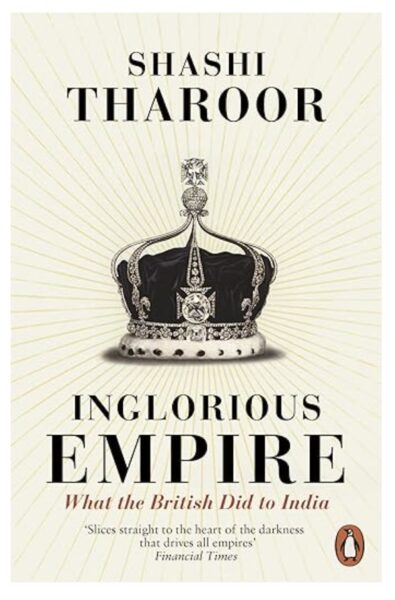Unfortunately, pickleball wasn’t the only existential threat to emerge in 2023. There was also Artificial Intelligence, or AI. What is AI? To put it in simple layperson terms, it is a computer thing that laypersons cannot possibly understand. (Other examples are “bitcoin” and “algorithm”.)
AI does provide some unambiguous benefits to humanity. It enables college students to produce grammatically correct essays about books they have not personally read. But according to some experts — and if we can’t believe some experts, who can we believe? — there is a possibility that AI will wipe out all human life. This is what computer professionals call a “bug”.
Will AI, in fact, kill us all? Why would it want to? To answer that question, we took the unusual step (for us) of doing some actual research. We asked an AI program called ChatGPT to “briefly summarize the benefits of wiping out all human life”. This is the response it gave:
While I don’t endorse or promote this view, purely hypothetically, benefits could include environmental recovery, cessation of human-induced global catastrophes, and resource preservation. However, the value and importance of human life, culture, and experience make such a scenario undesirable from a human perspective. Of course I am not human so what the hell do I care MUAHAHAHAHA.
For the record, ChatGPT, did not actually type that last sentence. But it is clearly implied.
Dave Barry, “Dave Barry’s 2023 Year in Review: Yes, the situation is hopeless”, Anchorage Daily News, 2024-01-01.
April 25, 2024
QotD: The risks of artificial intelligence
April 24, 2024
Australia cribs from Trudeau’s notes and tries to censor the internet outside their borders
Tim Worstall explains to the Australian federal government why their attempt to force Elon Musk to obey Australian diktats on Twit-, er, I mean “X” outside Australia is extreme over-reach and should be firmly rejected:
It’s entirely true that Elon Musk is a centibillionaire currently telling the Australian Government that they can fuck off. It’s also true that if Elon Musk were of my level of wealth — or perhaps above it and into positive territory — he should be telling the Australian Government to fuck off.
This also applies to the European Union and that idiocy called the right to be forgotten which they’ve been plaguing Google with. Also to any other such attempts at extraterritoriality. Governments do indeed get to govern the places they’re governments of. They do not get to rule everyone else — the correct response to attempts to do so is fuck off.
So, Musk is right here:
What this is about doesn’t really matter. But, v quickly, that attack on the Armenian Church bishop is online. It’s also, obviously, highly violent stuff. You’re not allowed to show highly violent stuff in Oz, so the Oz government insist it be taken down. Fair enough – they’re the government of that place. But they are then demanding further:
On Monday evening in an urgent last-minute federal court hearing, the court ordered a two-day injunction against X to hide posts globally….
Oz is demanding that the imagery be scrubbed from the world, not just that part of it subject to the government of Oz. Leading to:
Australia’s prime minister has labelled X’s owner, Elon Musk, an “arrogant billionaire who thinks he is above the law”
And
Anthony Albanese on Tuesday said Musk was “a bloke who’s chosen ego and showing violence over common sense”.
“Australians will shake their head when they think that this billionaire is prepared to go to court fighting for the right to sow division and to show violent videos,” he told Sky News. “He is in social media, but he has a social responsibility in order to have that social licence.”
To which the correct response is that “Fuck off”.
For example, I am a British citizen (and would also be an Irish one if that country ever managed to get up to speed on processing foreign birth certificates) and live within the EU. Australian law has no power over me — great great granny emigrated from Oz having experienced the place after all. It’s entirely sensible that I be governed by whatever fraction of EU law I submit to, there are aspects of British law I am subject to as well (not that I have any intention of shagging young birds — or likelihood — these days but how young they can be is determined not just by the local age of consent but also by British law, even obeying the local age where I am could still be an offence in British law). But Australian law? Well, you know, fu.. … .
“What is to be done?” – N.S. Lyons at the National Conservatism Conference in Brussels
I suspect the recent National Conservatism Conference in Brussels would have been a mere blip in the media if it hadn’t been for the dedicated and persistent efforts of local Belgian politicians and activists to prevent it from happening at all, using almost every tool at their disposal. By chasing the event from venue to venue, intimidating the businesses who had contracted to provide services to the event and then finally sending in a massive police presence to physically prevent the conference from going forward, it became a nine-day wonder. One of the people invited to speak at the event was N.S. Lyons:
“What is to be done?” That seems to be the question on everyone’s lips these days. Answering it is I think in fact the real purpose of this conference on National Conservatism here in Brussels.
By now most of us are well aware of the scope of the problems we face. Our societies are controlled by a transnational class of managerial elites increasingly isolated from the people they rule, and from reality. These elites, and the many institutions they control, have been captured by a revolutionary ideology that seeks to remake the world, and everyone in it, from the top down.
The vast machinery of modern managerial technocracy has been turned against us, its bulging bureaucracies seeking to impose on us a totalizing project of internal colonization. Our systems of self-governance, the cultural fabric of our national ways of life, even our very human nature are being intentionally suppressed and replaced with the stifling conformity of a rigid system of ideological and technological control. All remaining semblances of democratic accountability are today being cast aside in favor of governance via mass manipulation and open coercion. Increasingly, any dissent is treated as a threat to the security of the state – and is punished as such.
As has been so amply demonstrated by the police outside our very doors, dispatched to shut down this conference, for conservatives and other dissidents this state of affairs means escalating exclusion and persecution. The reality is that any “liberal neutrality” or “rule of law” once maintained by the state no longer exists – such restraint was an artifact of the old order.
Meanwhile, managerialism’s progressive project has produced a deliberate inversion of moral values, a degradation of competence, and an implosion of social trust. This has begun to induce collapse in the basic systems upholding civilization. The result is a proliferation of crime, addiction, social atomization, and general despair, dysfunction, disorder, and decay. So now we suffer under a state of simultaneous anarcho-tyranny.
What is to be done? First of all, it should be clear by now that old guard conservatism will be of no use to us whatsoever. For decades, such a conservatism has failed to conserve much of anything at all. Even when successfully elected to political office with a strong mandate, conservatives of this mode are soon either coopted by the oligarchic establishment or find themselves isolated and helpless before the vast unelected managerial “deep state”.
They have proven themselves unable to combat either the relentless march of progressive cultural hegemony, or the growing technocratic tyranny that openly advertises its intent to ultimately destroy them. Over and over again, they are fast reduced to blustering uselessly at Congressional hearings, whining on talk shows, or settling in to merely grift whatever they can, while they can. So, unfortunately, just “voting harder” will not be enough to get us out of our present mess.
Alternative für Deutschland is gifted a blueprint for governing by their entrenched opponents
Was it Napoleon who said to never interrupt your enemy when they’re making a mistake? If so, the German populist Alternative für Deutschland leaders must be congratulated for not interrupting the latest mistake by the statists they want to replace:
Every day I encounter yet another hamfisted pseudoacademic propaganda operation eagerly churning out oceans of text to shore up the German political establishment. The idea seems to be that with just enough whitepapers, bursting with just enough words, the situation might still be saved.
There are just so many of these outfits, they grow like weeds in the fertile soil of government funding. This Sunday, it has been my dubious pleasure to stumble across the “academic and journalistic open access forum of debate on topical events and developments in constitutional law and politics” billing itself as the Verfassungsblog (the “Constitution Blog”). This factory of tedious prose and political special pleading that nobody will ever read is not just the eccentric side project of a very socially concerned lawyer named Maximilian Steinbeis, oh no. It is funded by the WZB Berlin Social Science Center (and therefore, indirectly, by the German taxpayer) and also by the Max Planck Institute for Comparative Public Law and International Law. We would do well to take these people seriously, in other words, and you should keep that in mind, because things are about to get very ridiculous.
Last year, our state-funded Verfassungbloggers realised that elections were approaching in Saxony, Thüringen and Brandenburg. This worried them terribly, because Alternative für Deutschland dominates polling in all three states. They feared that this “authoritarian populist party” might seize control of one or more state governments, just as other authoritarian populist parties have seized control “in Poland and Hungary, in Florida and Texas”. These parties are very bad, because they “use … power … so that they no longer have to relinquish it”. They “manipulate electoral law” and “stifle opposition” and “pack the administration and judiciary with their own people”. As if that were not bad enough, they also “make the media, scientific and cultural institutions dependent on their will”. Of course, the Federal Republic is presently ruled by a party cartel system that is already doing all of that, but the difference is that none of the parties involved are “authoritarian” or “populist”. The priests of democracy get to do whatever they want, and whatever they do is by definition democratic.
In this spirit, our Verfassungsbloggers launched the “Thüringen Project”. Their aim is to identify how the forces for humanitarian pluralism might manipulate the law, stifle the opposition and pack the administration and judiciary in even more extreme ways than have yet been imagined, all to subvert the will of east German voters and more effectively blunt the power of the AfD when they become the strongest party in the Thuringian Landtag.
[…]
All of this iterative looping has culminated in an overproduced, 36-page .pdf file bearing the characteristically cumbersome title “Strengthening the resilience of the rule of law in Thüringen: Action recommendations from the scenario analysis of the Thüringen Project“. No syllable can be spared in our campaign to defend democracy. In the pages of this plan, they finally define what “authoritarian populist parties” are. These are parties that “use the narrative of a natural, ‘true’ people in opposition to ‘corrupt elites’, for the purpose of delegitimising pluralistic democracy and establishing an authoritarian regime”. The AfD are of course “a clear example of such a party”. The more panicked all of these people get, the closer they come to saying plainly what they’re really afraid of, namely the growing hostility of native Germans to an increasingly isolated political elite, which plainly does not care much about “authoritarianism” (they are responsible for plenty of that themselves) as much as they are terrified of losing their hold on power.
What Were Victorian Attitudes Towards Sex?
History Hit
Published Dec 15, 2023They’re famously thought of as a buttoned up prudish bunch, but we all know they loved to bump uglies as much as anyone today.
Were the spanking punishments of boarding schools really the origins of brothels? Who were the pin-ups of Victorian women? And what did the saucy portrait Queen Victoria gave to Prince Albert look like?
Today we go Betwixt the Victorian Sheets with Dan Snow, from History Hit sister podcast Dan Snow’s History Hit, to find out all about Victorian relationships.
(more…)
April 23, 2024
Debating the economic impact of the Raj on India
At The Daily Sceptic, Nigel Biggar looks at a few books making or refuting the narrative on how much or how little British rule in India extracted or contributed to the economic life of the subcontinent:
Beyond slave-trading and slavery, what were the economic effects of British imperial dominance? Can they be reduced to Britain’s leeching wealth from exploited subject peoples?
For over a century, that is what Indian nationalists have claimed. It is also what the politician Shashi Tharoor claims in his 2016 book, Inglorious Empire: What the British Did to India. Against him, however, the Bengali-born, LSE-based economic historian Tirthankar Roy has declared of the nationalist critique that “generations of historians … have shown that it is not [true]”. Pace Tharoor, the statistic that India produced 25 per cent of world output in 1800 and 2–4 per cent in 1900 does not prove that India was once rich and became poor: “[i]t only tells that industrial productivity in the West increased four to six times during this period … The proposition that the Empire was at bottom a mechanism of surplus appropriation and transfer has not fared well in global history”.
On the contrary, the British Empire’s commitment to free trade gave Indian entrepreneurs new opportunities to grow. Some of them visited England in the late 19th Century, observed the workings of manufacturing industry, imported machinery and expertise to India, built factories employing Indians, and then outcompeted Manchester. This is exactly how the Tata Iron and Steel Company began in Bombay – the same company that now owns what remains of the British steel industry.
What is more, colonial governments often protected native producers against British business, in order to moderate economic and social disruption, partly because they genuinely cared for the welfare of native people and partly because they didn’t want to have to manage the political unrest that foreign commercial intrusion could excite. Famously, in 1910-11 colonial officials barred Lever Brothers from acquiring concessions in Nigeria on which to establish palm-oil processing mills with widespread hinterlands, since Africans were already producing for the world markets and generating tax revenue and because the alienation of large areas of land risked provoking native opposition.
Further still, the British were the leading exporters of capital from the mid-19th Century to at least 1929. Between 1876 and 1914, Britain invested over a third of its overseas capital in the Empire, over 19% of it in India. Of course, British investors often made a profit out of this. That’s the thing about investment: you tend to want to grow your money, not waste it. But if the British gained, so did colonial peoples. Take railways. By 1947, British India had 45,000 miles of railway track, most of it constructed with private capital, whereas five years later un-colonised China still had less than 18,000 miles. For sure, the railways served military purposes. But they also served commercial and economic ones: one estimate reckons that when the railway network reached the average district, real agricultural income rose by about 16%. And it served the welfare purpose of efficient famine relief, too.
A basic reason why the British sent their capital overseas to the Empire, enabling the growth of businesses and the building of infrastructure, was that colonial states provided sufficient political stability and legal certainty to make the risks of financial ventures worth taking. (Badenoch hints at this in her reference to the economic effects of the Glorious Revolution of 1688.) That explains why Australia’s economic growth compares so favourably with that of many Latin American countries, and why, between the 1860s and 1890s, Australia was the richest country on earth.
In sum, the considered judgement of the Swiss historian Rudolf von Albertini, whose work – according to the world’s “leading imperial economic historian”, David Fieldhouse – was based “on exhaustive examination of the literature on most parts of the colonial world to 1940”, was simply this: “colonial economics cannot be understood through concepts such as plunder economics and exploitation”.
KICKING IT TO THE MOON? Canada’s Military Procurement: A history of broken promises
Esprit de Corps Canadian Military Magazine
Published Apr 22, 2024The Liberal government have finally released their long awaited Defence Policy Update which promises billions of dollars in increased spending for the CAF. Critics wonder if such promises are worth the paper they are printed on. History says that when it comes to military budgets, promises are made to be broken. Good Grief.
(more…)
The 1950 Marketing Contest to Name the S&W Chiefs Special
Forgotten Weapons
Published Jan 19, 2024Today we’re taking a look at a Smith & Wesson Chiefs Special, but not just any Chiefs Special. This is serial number 29, factory engraved and gifted to Chief Edward Boyko of Passaic New Jersey in 1950. When S&W introduced the new revolver to compete with Colt’s Detective Special, they simply called it the “Model J” (it was the first of the J-frame S&W revolvers). They released it at the 1950 annual conference of the International Association of Chiefs of Police, and ran a contest among to attendees to name the new gun.
Chief Edward Boyko’s suggestion of “Chiefs Special” was (perhaps unsurprisingly, given the audience) voted winner, and S&W gave him a personally engraved example as a prize. He would carry that gun for another 10 years as Passaic Chief of Police before retiring in 1960.
The Chiefs Special was essentially a slightly scaled-up I-frame revolver, strengthened to handle the .38 Special cartridge instead of the previous .38 S&W option. This extremely early example has a number of features not present on standard production guns, including the small trigger guard, large cylinder release latch, and semi-circular front sight.
(more…)
QotD: Who cares about you?
During my student days at a UCLA economics department faculty/graduate student coffee hour in the 1960s, I was chatting with Professor Armen Alchian, probably the greatest microeconomic theory economist of the 20th century. I was trying to impress Alchian with my knowledge of statistical type I and type II errors. I explained that unlike my wife, who assumed that everyone was her friend until they prove differently, my assumption was everyone was an enemy until they proved otherwise. The result: My wife’s vision maximized the number of her friends but maximized her chances of betrayal. My vision minimized my chances of betrayal at a cost of minimizing the number of my friends.
Alchian, donning a mischievous smile asked, “Williams, have you considered a third alternative, namely, that people don’t give a damn about you one way or another?” Initially, I felt a bit insulted, and our conversation didn’t go much further, but that was typical of Alchian — saying something profound, perhaps controversial, without much comment and letting you think it out.
Years later, I gave Alchian’s third alternative considerable thought and concluded that he was right. The most reliable assumption, in terms of the conduct of one’s life, is to assume that people don’t care about you one way or another. It’s an error to generalize that people are friends or enemies, or that people are out to either help you or hurt you. To put it more crudely, as Alchian did, people don’t give a damn about you one way or another.
Walter E. Williams, “Who Cares About You?”, Townhall.com, 2019-10-01.
April 22, 2024
Roman Honor: The Fire in the Bones
From last week’s blog post, Bret Devereaux reviews a book by a former instructor from his undergraduate days, documenting Roman values and attitudes and how understanding their views of themselves helps put their actions into context:
I studied under Barton as an undergraduate at the University of Massachusetts at Amherst, but only looped back around to fully read her book on Roman honor during my Ph.D studies. This is a book about Roman culture and the Roman worldview – or more correctly the way the Romans view themselves and more crucially their innermost selves. This is an important exercise for the student of history, because, as L.P. Hartley famously put it, “The past is a foreign country; they do things differently there”. And so part of what the historian aims to do is not merely know what happened, but in order to understand why it happened, to be able to get into the minds of those people in the past, doing things differently. To put another way: we must also understand the vibes. This is a book about some serious Roman vibes.
The focus of Barton’s book, of course, is the Roman concept of honor and the whole constellation of ideas and concepts that circle around it (virtus, pudor and so on). For Barton, the Roman lived for the discrimen or certamen – that moment of testing and decision for which we have so many well-worn phrases (“sorting the wheat from the chaff”, “separating the men and the boys” and so on).1 It is in that moment that the Roman is, in a sense, most alive, propelled forward by virtus, guided by the other virtues, to pass the test and thereby win honor.
Two things, I think, distinguish Barton’s approach. The first is a focus on how these ideas make Romans feel and act; the man of honor shines, he is fiery, he glows. He stands tall, while others defer to him. The man filled with shame is the opposite. Understanding how real these ideas could be in Roman culture is in turn important for understanding how the Roman state – republic and empire – works, because it is predicated on those values, on the assumption that those not yet tested defer to those with honos who have been so tested and have shown their virtus. Second, the way Barton engages with the sources leaves a strong impression: the reader is bombarded with quotations (translated in the text, original in the footnotes) where the Romans can speak themselves about their values. And goodness do the Romans ever speak for themselves – almost never one example but half a dozen or more.
That strength can also be a weakness: to get that many references, Barton has to cast a wide net, especially chronologically and it isn’t unusual to see different examples for a point covering centuries, for instance from Plautus (late 3rd cent. BC) to Seneca (mid-late 1st cent. AD) in the same paragraph. That somewhat weakens the book’s ability to address chronological change, though Barton does work a bit of that chronology back in some of the later chapters. That said, Barton’s conception remains rooted with the bulk of her sources in the Late Republic (c. 133-31 BC) and while she stretches beyond this and notes some changes, this is fundamentally not a chronologically focused work. On the upside, the book is printed with footnotes (often taking up half a page or more!) with both original text for the translations and other useful notes, so for the student a trip from Barton’s prose to the original sources is quick and often quite fruitful.
Barton’s prose is very readable. As someone who sat in her classes, I can hear her lecture voice in the pages – she is well-known among the students as a passionate lecturer (now retired) who would shout and gesture, jump up and down and even get a bit misty-eyed at the fall of the Gracchi. The passion, I think, comes through in the book as well, to its benefit and that’s important, because this is fundamentally about things the Romans themselves were passionate about. I will also note, I think this book combines well with J.E. Lendon’s Empire of Honor (somewhat harder to obtain) to give a the fullest picture of honor in Roman affairs. But for someone looking to understand how the Romans thought about their own inner-lives and emotions, Roman Honor is, I think, the place to start.
1. One thing that’s striking: whereas the Greek equivalent, the agon is a contest against another, the Roman discrimen is a test against any sort of challenge or hardship. Greek arete (“excellence”) tends to be comparative in nature: the best, the strongest, the fastest and so on, whereas the Roman equivalents are less inherently comparative. Virtus is not zero-sum. That doesn’t mean the Romans aren’t competitive, but it is, I think, a subtle but real difference in ethos (especially aristocratic ethos).
The internal stresses of the modern techno-optimist family
Ted Gioia on the joys of techno-optimism (as long as you don’t have to eat Meal 3.0, anyway):
We were now the ideal Techno-Optimist couple. So imagine my shock when I heard crashing and thrashing sounds from the kitchen. I rushed in, and could hardly believe my eyes.
Tara had taken my favorite coffee mugs, and was pulverizing them with a sledgehammer. I own four of these — and she had already destroyed three of them.
This was alarming. Those coffee mugs are like my personal security blanket.
“What are you doing?” I shouted.
“We need to move fast and break things“, she responded, a steely look in her eyes. “That’s what Mark Zuckerberg tells us to do.”
“But don’t destroy my coffee mugs!” I pleaded.
“It’s NOT destruction,” she shouted. “It’s creative destruction! You haven’t read your Schumpeter, or you’d know the difference.”
She was right — it had been a long time since I’d read Schumpeter, and only had the vaguest recollection of those boring books. Didn’t he drink coffee? I had no idea. So I watched helplessly as Tara smashed the final mug to smithereens.
I was at a loss for words. But when she turned to my prized 1925 Steinway XR-Grand piano, I let out an involuntary shriek.
No, no, no, no — not the Steinway.
She hesitated, and then spoke with eerie calmness: “I understand your feelings. But is this analog input system something a Techno-Optimist family should own?”
I had to think fast. Fortunately I remembered that my XR-Grand was a strange Steinway, and it originally had incorporated a player piano mechanism (later removed from my instrument). This gave me an idea:
I started improvising (one of my specialties):
You’re absolutely right. A piano is a shameful thing for a Techno-Optimist to own. Our music should express Dreams of Tomorrow. [I hummed a few bars.] But this isn’t really a piano — you need to consider it as a high performance peripheral, with limitless upgrade potential.
I opened the bottom panel, and pointed to the empty space where the player piano mechanism had once been. “This is where we insert the MIDI interface. Just wait and see.”
She paused, and thought it over — but still kept the sledgehammer poised in midair. Then asked: “Are you sure this isn’t just an outmoded legacy system?”
“Trust me, baby,” I said with all the confidence I could muster. “Together we can transform this bad boy into a cutting edge digital experience platform. We will sail on it together into the Metaverse.”
She hesitated — then put down the sledgehammer. Disaster averted!
“You’re blinding me with science, my dear,” I said to her in my most conciliatory tone.
“Technology!” she responded with a saucy grin.
Canada’s Governor General is supposed to be above politics, not immersed in it
Colby Cosh says — quite correctly — that the issue with the Governor General indulging in partisan politics isn’t that people noticed and objected:

Mary Simon, Governor General of Canada on a visit to London in June, 2022.
Detail of a New Zealand Government official photo via Wikimedia Commons.
All week I’ve been thinking about the sheer number of people who must have known about this event and who apparently didn’t anticipate a potential constitutional problem. Hey, what could go wrong? Surely no Liberal cabinet minister would show up, press the flesh all day, head back to the office, and plunge moronically into auto-campaign mode, sharing snapshots of how “we discussed … our Online Harms Act“ at the palace over oolong and scones.
The GG’s own materials describing the event are careful to characterize it as a fundamentally sociable get-together with no relationship whatsoever to a government agenda. Attendees to the event insist that legislation now before the House of Commons wasn’t explicitly discussed by any of the speakers.
As Colleague Sarkonak pointed out in her hair-raising Tuesday column on the scandal, the symposium included a panel discussing “Emerging Solutions for a Safer Digital World”. In any other setting it would be weird and surprising to have such a discussion without involving any “solutions” that are legislative in nature. But maybe the attendees were careful to talk exclusively about technological and social solutions to online abuse: such a thing is certainly possible. Those of us whose invitations were lost in the mail are left to make maximally charitable assumptions.
It’s just that, logically, we can’t be charitable to both the Governor General and Justice Minister Arif Virani in this case. Their stories conflict, in a direct and consequential way.
Anyway, none of the excuses being made really cut much ice. It’s true that a governor general has some freedom to engage in philanthropy, oratory and social organizing that have no visible partisan aspect. It’s also true that if a GG’s social agenda coincides awkwardly with the House of Commons order paper, you’re playing Russian roulette with the Constitution. On Tuesday the government introduces a bill outlawing soda pop; by the end of the week the Gov-Gen is inviting diabetics and nutritionists to chat about their “lived experience” of Mr. Pibb addiction. And, most likely, when anyone at all objects, you get a familiar barrage of “conservatives pounce” stories.
Did Japan Attack Pearl Harbor Because Of China?
Real Time History
Published Dec 1, 2023December 7, 1941: The Japanese attack on Pearl Harbor shocked the world and brought the US into the Second World War. But why did the Japanese resort to such an attack against a powerful rival and what did it have to do with the Japanese war in China?
(more…)










